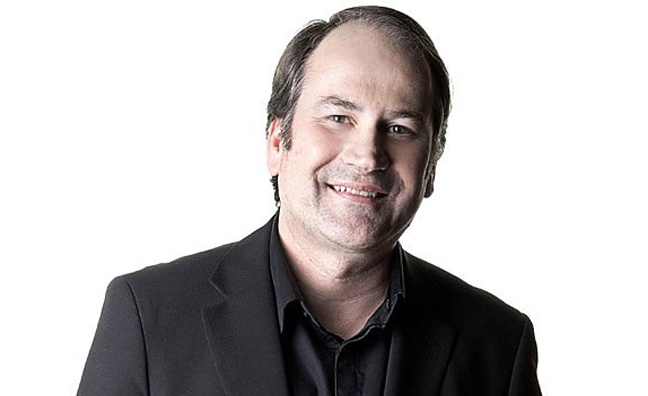On the cover of the new edition of Music Week, BBC Music boss Bob Shennan describes BBC One’s upcoming live music and entertainment series as “our chance to really make a statement”.
It certainly looks like everyone involved is gearing up to really go for it.
Fulwell 73 – the company behind James Corden’s The Late Late Show and its famous Carpool Karaoke segment – is formulating plans for the show, for which plans were confirmed last week after initial stories broke in the media.
Executive producers Gabe Turner and Suzi Aplin and showrunner Paul Wright are gunning for artists and labels to fill their debut series with stars to perform live and take part in comedy sketches.
Other than a six-episode run sometime in the autumn, further details remain scant, but Shennan has spoken at length to Music Week about the lead up to the announcement and the changes he and his team needed to put in place to get to this point.
Read on to find out why music still matters to BBC One and how Fulwell 73 and BBC Music plan to combine music and entertainment to build a legacy programme.
Why is now the time to launch the show and how long has it been in the offing?
It’s been in the offing since we really launched BBC Music really. So it’s been part of my planning for three years. It seems to me there’s a challenge for all of us who think it’s really important that we support and spotlight contemporary music to be on the big channel in the UK. And I think that we have all felt that we hadn’t worked out how to make music performance work on a regular basis. Part of the time has been taken with [tackling] that, how to do it? Part of it has been about learning the different approaches, and part of the time with winning the arguments and the opportunities to develop something that might have some longevity. There are no guarantees of course! But we are excited by the series. It’s the first time we have been able to bring a series of programmes to BBC One with music at their core, for about a dozen years. And that’s a great opportunity and obviously really exciting, so I’m sure the whole of the music industry is going to get behind it, just as I know all of BBC Music and BBC One will as well.
How important is it to have pop music back on BBC One?
I think for the music industry, it’s clearly incredibly important. For people who believe, as I do, that it can play a really important role in serving the needs of audiences, it’s really, really important. But there is no divine right for pop music to be on BBC One – and the reality is that if you just stick a succession of performances on one after the other, and there is nothing special about it, it’s not necessarily going to attract that audience. One of the great inspirations was what was achieved at One Love Manchester, which we were lucky enough to be able to offer to the BBC One audience on a Sunday evening, and it delivered the biggest TV ratings of the year. This was a show not about the BBC, but about the nation, and the catharsis after the tragic events in Manchester. But that then needed a glue to bind 11 million people together on the TV – and that glue was music. There was this sense that people of all generations were enjoying what they saw together, particularly a younger generation. And if we can develop something that helps put the spotlight on our brilliant UK music scene as well as the global music scene, and if we can make that content resonate for our audiences, then that is a good thing for all of us.
Do you have aspirations to build a legacy with this show?
Yes, of course. I think what we’re trying to achieve here is a fusion between the world of music – which brought us Top Of The Pops – and the world of entertainment, which has brought us some of the biggest successes on mainstream television in recent years. We are trying to fuse those things together to make the music work for BBC One, because there’s no point if it doesn’t work and the audiences don’t want it. So one of the things we’ve done here is to work between the lines of music and entertainment. Hopefully, it’ll hit upon a formula that feels really modern and fresh, and will work for the audience and will therefore become something that could come back again.
Could this kickstart a more general movement for pop music to be on television?
The thing is, there’s no divine right, and what I realised when I launched BBC Music, was that it wasn’t considered to be something that worked for audiences. If it was, if there was an easy way of doing it, then you can bet your bottom dollar that every TV channel in the world would be doing it. And the reason they’re not, is because it’s very hard to make it work. One of the things we’ve been doing in the last few years is trying to develop that BBC One platform for different projects: we’ve done the BBC Music Awards, we’ve done Adele at the BBC, Michael Buble at the BBC, we’ve done One Love Manchester. We do more TV music than any other broadcaster in the land, but it’s all about having impact. And in a way, I suppose, this series has come about because we had some successes for BBC One, and we are now getting our chance to take it to another level. This is our chance to really make a statement.
To read Music Week's editorial about why modern music TV is about more than just viewers click here.











